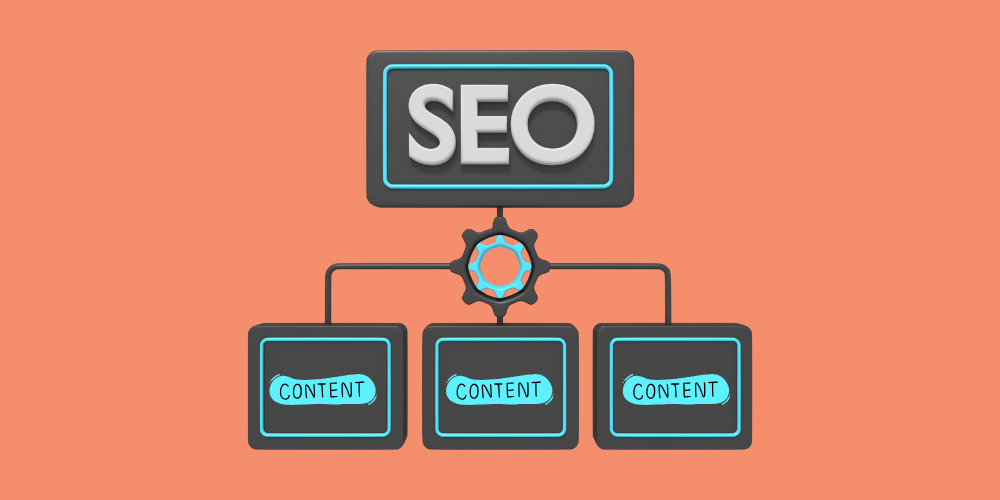As the digital landscape evolves, on-page SEO continues to be the cornerstone of search engine optimization strategies. With competition growing fiercer and search engines becoming smarter, optimizing your website’s pages for search engine algorithms and user experience has become a complex art. Gone are the days when sprinkling a few keywords into your content was enough. Today, on-page SEO is a sophisticated interplay of technical precision, content quality, and user engagement.
As we stand on the brink of a new decade, the strategies that worked yesterday may not guarantee results tomorrow. Emerging technologies like AI-powered tools, voice search, and the increasing focus on user intent are reshaping how search engines rank content. If you’re not adapting, you’re already falling behind. This blog will explore the transformative trends in on-page SEO that are setting the stage for the next decade and provide actionable insights to keep you ahead of the curve.
The Rise of AI-Driven Content Optimization
Artificial Intelligence (AI) tools are becoming indispensable in crafting and optimizing content. Tools like ChatGPT, SurferSEO, and MarketMuse use machine learning to analyze keyword density, intent, and competitor content.
AI can help identify content gaps and suggest ways to improve your on-page SEO. For example, by understanding the primary and secondary keywords, AI tools can recommend the ideal structure for your blog posts, including where to use H1, H2, and H3 tags for maximum impact.
- Actionable Tip: Incorporate AI-driven tools to analyze your competitors’ strategies and fine-tune your content to match or surpass their quality.
Core Web Vitals Will Take Center Stage
Google’s Core Web Vitals—focusing on loading speed, interactivity (First Input Delay), and visual stability (Cumulative Layout Shift)—are already influencing rankings. Over the next decade, the emphasis on user experience (UX) will only grow stronger.
Search engines will prioritize sites that not only load fast but also provide a seamless experience across devices. With technologies like 5G, users will expect blazing-fast load times, and search engines will reward pages that deliver.
- Actionable Tip: Use tools like Google PageSpeed Insights and GTmetrix to monitor and improve your Core Web Vitals regularly. Focus on image optimization, minimizing CSS/JavaScript, and using a content delivery network (CDN) to speed up your site.
The Growing Importance of Voice Search Optimization
With the popularity of smart speakers like Amazon Alexa and Google Assistant, voice search is becoming a key part of SEO. Voice queries tend to be longer and more conversational, often starting with phrases like “What is,” “How to,” or “Why does.”
- Actionable Tip: Optimize your on-page content for long-tail keywords and question-based queries. Include an FAQ section in your articles to capture voice search traffic.
Semantic Search and User Intent
Search engines are moving beyond matching exact keywords. Semantic search—understanding the context and meaning behind user queries—will dominate the next decade. Google’s BERT and MUM algorithms already aim to interpret user intent more accurately.
This means your content needs to address informational, navigational, transactional, and comparison intents explicitly. Pages stuffed with keywords but failing to meet user intent will see a drop in rankings.
- Actionable Tip: Use tools like AnswerThePublic or AlsoAsked to identify common queries in your niche. Structure your content around addressing these user intents comprehensively.
Visual and Interactive Content Optimization
The future of on-page SEO will heavily feature visual content like images, videos, infographics, and even augmented reality (AR) experiences. These elements increase engagement and reduce bounce rates.
Additionally, interactive content like quizzes, polls, and calculators can make your pages more engaging, encouraging users to spend more time on your site—a key ranking factor.
- Actionable Tip: Use platforms like Canva for creating visuals and tools like Outgrow or Typeform for interactive content. Ensure all media files are optimized with descriptive alt tags, appropriate file names, and compressed file sizes.
Structured Data and Schema Markup
Search engines rely heavily on structured data to better understand your content. Schema markup can help your pages feature prominently in rich snippets, driving more organic clicks. In the future, structured data may evolve to support more advanced content types, such as 3D visuals or interactive widgets.
- Actionable Tip: Use tools like Google’s Structured Data Markup Helper or RankMath plugins to implement schema on your pages easily.
Mobile-First Indexing Will Rule the Game
With most users accessing the internet via smartphones, Google has transitioned to mobile-first indexing, meaning the mobile version of your website is prioritized over the desktop version.
In the future, designing with a mobile-first mindset won’t be optional—it will be mandatory for survival in search rankings. This includes responsive design, fast mobile load speeds, and content that’s easy to navigate on small screens.
- Actionable Tip: Test your site using Google’s Mobile-Friendly Test and ensure all features, from buttons to menus, work seamlessly on mobile devices.
Focus on Topical Authority
Rather than targeting individual keywords, search engines will value websites that demonstrate authority across a topic cluster. This means creating interconnected content that explores all facets of a subject.
For example, instead of writing a single article on “SEO,” create a cluster of related posts, such as “On-Page SEO,” “Technical SEO,” and “Local SEO,” all linking to a central pillar page.
- Actionable Tip: Use a content cluster model to structure your site and link strategically. Tools like SEMrush or HubSpot can help you plan and execute topic clusters effectively.
Sustainability and Ethical SEO Practices
Consumers and search engines alike are paying attention to businesses that prioritize sustainability and ethical practices. Pages that emphasize eco-friendly efforts, diversity, or inclusivity may gain favor with certain audiences.
- Actionable Tip: Highlight your business’s values in your content and metadata to resonate with socially conscious audiences.
Wrapping Up
As the digital marketing landscape continues to evolve, on-page SEO remains an essential part of building and sustaining online visibility. However, the future will demand a more nuanced and strategic approach, leveraging advancements like AI tools, structured data, and Core Web Vitals optimization. It’s no longer just about “ranking” but creating a seamless, engaging, and valuable experience for users.
By embracing trends like mobile-first indexing, semantic search, and topical authority, you can future-proof your SEO strategy and stay ahead of competitors. Remember, SEO is a marathon, not a sprint. Regularly auditing your site, experimenting with new tools, and keeping an eye on evolving trends will keep your strategy dynamic and effective.
The next decade offers immense opportunities for those willing to adapt. So, take the hacks, techniques, and tools discussed here and put them into action. The sooner you start optimizing for the future, the better positioned you’ll be to thrive in the competitive world of digital marketing.




